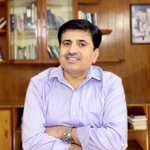Homeopathy FAQs: Clear and Simple Answers to Your Most Common Questions
Welcome to the Homeopathy FAQ page of Dr. Hussain Kaisrani, a leading homeopathic doctor and psychotherapist in Lahore, Pakistan. Here, we’ve compiled answers to some of the most frequently asked questions about homeopathic treatments, procedures, and principles.
If you’re curious about how homeopathy works, its benefits, or whether it’s the right choice for you, this guide will clarify everything you need to know.
Frequently Asked Questions (FAQs) About Homeopathy
1. Can Homeopathy Be Used Alongside Other Treatment Systems?
In general, it’s recommended to use one medical system at a time to avoid potential interactions between treatments. However, if you’re undergoing treatment with another system (e.g., conventional medicine) and would like to include homeopathy, it’s important to consult with a homeopath first. Dr. Hussain Kaisrani can guide you on how to safely integrate homeopathic remedies with your current treatment plan.
2. Are Homeopathic Medicines Safe? Do They Have Side Effects?
Homeopathy is well-known for being a safe, gentle, and non-toxic form of treatment. Homeopathic remedies do not have known harmful side effects when used correctly. However, it’s essential to take homeopathic medicines under professional guidance. Incorrect self-medication or improper use of remedies can lead to ineffective results. Always consult with an experienced homeopath, like Dr. Kaisrani, to ensure the right remedy is chosen for your individual symptoms.
3. How Long Does It Take to See Results with Homeopathy?
The time required for homeopathic treatment to show results depends on several factors, including:
- The severity of the condition
- Whether the condition is acute or chronic
- How well you respond to the remedy
- Consistency in following the prescribed treatment
For acute conditions, homeopathy often provides rapid relief. However, chronic conditions may take more time to show improvements. It’s important to stay patient and follow the homeopath’s guidance for the best possible results.
4. How Should Homeopathic Medicines Be Taken?
Homeopathic remedies come in various forms such as liquids, tablets, globules, and powders. The method of administration depends on your specific condition and the remedy prescribed by your homeopath. Dr. Hussain Kaisrani will provide personalized instructions for how and when to take your remedies. Be sure to follow these instructions carefully to maximize their effectiveness.
5. How Should Homeopathic Medicines Be Stored?
Proper storage ensures the longevity and potency of homeopathic remedies. Here are some tips for storage:
- Avoid direct sunlight and strong light exposure.
- Store remedies in airtight containers to prevent evaporation, especially for liquid forms.
- Keep medicines away from strong odors (like perfumes) and electronic devices (such as TVs or cell phones) as these can affect the medicine’s effectiveness.
- Room temperature is ideal—refrigeration is not necessary.
By following these simple guidelines, you can ensure your remedies remain effective for long periods.
6. What Are Modalities in Homeopathy?
In homeopathy, modalities refer to the factors that aggravate or relieve your symptoms. These could include:
- Time of day (e.g., worse in the evening, better in the morning)
- Weather conditions (e.g., aggravated by cold or dampness)
- Physical activities (e.g., better with rest, worse with movement)
- Food preferences (e.g., cravings or aversions)
- Emotional states (e.g., stress, sadness, or anxiety)
Understanding these factors is crucial, as they help your homeopath select the most appropriate remedy for your condition. Always communicate any factors that influence your symptoms for the most accurate treatment.
7. Can Homeopathy Treat Specific Diseases, or Are There Specialists for Different Conditions?
In classical homeopathy, homeopaths treat the whole person, not just the disease. Unlike conventional medicine, where there are specialists for each organ or system, homeopathy takes an integrated approach that considers your physical, emotional, and mental health as a whole. Dr. Hussain Kaisrani has extensive experience in treating a wide range of conditions, from acute illnesses to chronic diseases. He doesn’t limit his practice to specific diseases or organs but focuses on personalized care for each individual.
8. Can a Person Be Treated Online Without Physical Examination?
Yes, online consultations are possible in homeopathy. Since physical examination can’t be conducted remotely, Dr. Hussain Kaisrani uses a detailed questionnaire to gather all the necessary information about your symptoms, medical history, and lifestyle. This helps him create a personalized treatment plan. You can provide this information via email or phone consultations. It’s essential to answer the questions accurately and honestly to ensure an effective treatment approach.
About Dr. Hussain Kaisrani
Dr. Hussain Kaisrani is an experienced homeopathic doctor and psychotherapist based in Lahore, Pakistan. With a Diploma in Homeopathic Medicine System (DHMS), a Bachelor’s in Homeopathic Medicine System (BHMS), a BSc, and an MS in SM from the University of Wales, UK, Dr. Kaisrani brings extensive knowledge and a holistic approach to healthcare.
His holistic treatment philosophy addresses not only physical ailments but also emotional and mental well-being. Dr. Kaisrani is known for offering safe, natural remedies for a variety of conditions, from chronic diseases to emotional disorders and acute illnesses.
For more information about Dr. Kaisrani’s approach to homeopathic treatments, visit his official profile.
If you still have any questions or would like personalized advice, feel free to contact Dr. Hussain Kaisrani for a consultation. Start your journey to better health with the healing power of homeopathy today!
